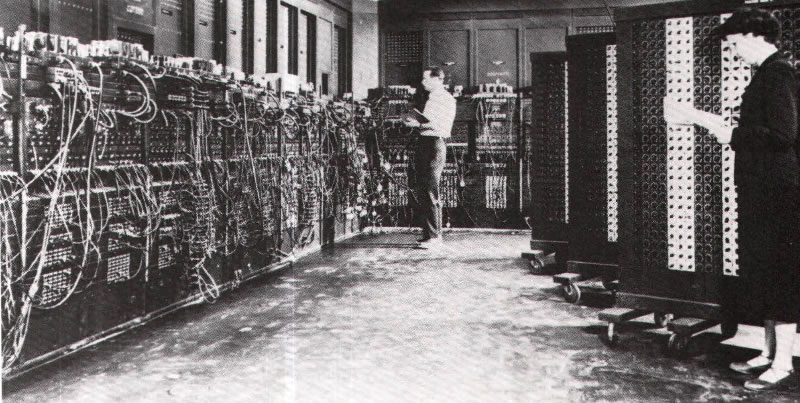A call for exceptional engineering in biology
If you are good with computers and math, it is likely you are working on social media feeds, one-click checkout forms or platforms that move money around. This is unfortunate.

Engineers previously had the opportunity to work on far more profound projects. They pieced together mainframe computers with vacuum tubes and used them to simulate atomic bombs. Others taught machines to talk to each other with wires and connected the world with the Internet.
The next engineering project with a lasting impact on humanity will not come from social media or fintech companies. It will be spearheaded by a team building at the intersection of biology and computing. Scientists today are developing new classes of living therapies by engineering cells and viruses to destroy cancer. They are using controlled evolution as a tool to generate synthetic proteins with enhanced properties. The government is publicly funding soldier augmentation projects to curb weaponized gene editing.
We are entering the century of biology, and the world's next generational company will emerge building its software backbone. You have the opportunity as an engineer to get in on the ground floor and be on the team building it.
Today, LatchBio is storing and processing experimental data for over forty biotech companies. We have raised $33M dollars and have become the cloud platform of choice for modern biotech research. Tomorrow, the world's corpus of biological sequences will flow through our infrastructure and we will equip scientists with new methods of interrogating and building biology at the population scale.
We are looking for prodigious engineers - real polymaths with a love for computers - to join our engineering shop in San Francisco.
Engineering at Latch
One of our beliefs is that powerful tools for life sciences will be built by those with rigorous training in mathematics and computer science without a previous background in biology. These fields provide tools for reasoning about biological problems in different ways from traditional researchers.
One Latch engineer finished most of Berkeley's graduate mathematics program in a few years of undergrad before dropping out to join the team. Another one built an operating system and compiler before he could drive. None had classical training in molecular biology. All have proven to be incredibly fast learners.
We also believe this platform should be built by a small number of very good people rather than a few hundred mediocre ones. The productivity gap between exceptional and average in engineering can easily be more than an order of magnitude. And the synergistic effects of a small group of good people is far greater than the sum of its parts.
Necessarily one must develop fluency in skills across lots of domains. In a single day a Latch engineer might work on features spanning:
- full-stack web development
- database administration
- infrastructure engineering
- statistical / algorithmic programming
- bioinformatics
- systems programming
We do not have "front-end", "back-end" or "machine learning engineers". Everyone is just an engineer. You should be able to pick up new languages/frameworks in a day and combine disciplines flexibly to solve problems on the job.
To reinforce this autodidactic culture we host regular reading groups covering topics from category theory to immunology. There is an energy of intellectual curiosity and encouragement to go deep with every topic.
Engineers are also given enormous responsibility and creative freedom over the design and implementation of features we build. The code we ship will often touch thousands of scientists the same day it's released, and we work directly with these end users to fix issues and aggressively improve our tools.
The Constraints
Our team could not be more serious about our opportunity to build a generational platform for science:
- We work 6 days a week. Monday through Saturday.
- We work strictly in-person in Mission Bay, SF.
- We want passionate engineers who will be designing, writing, and reviewing code.
The environment we have created selects for people who want to dedicate their lives to their craft and be part of a project larger than themselves.
Please email me at kenny@latch.bio if you are interested in engineering at Latch.